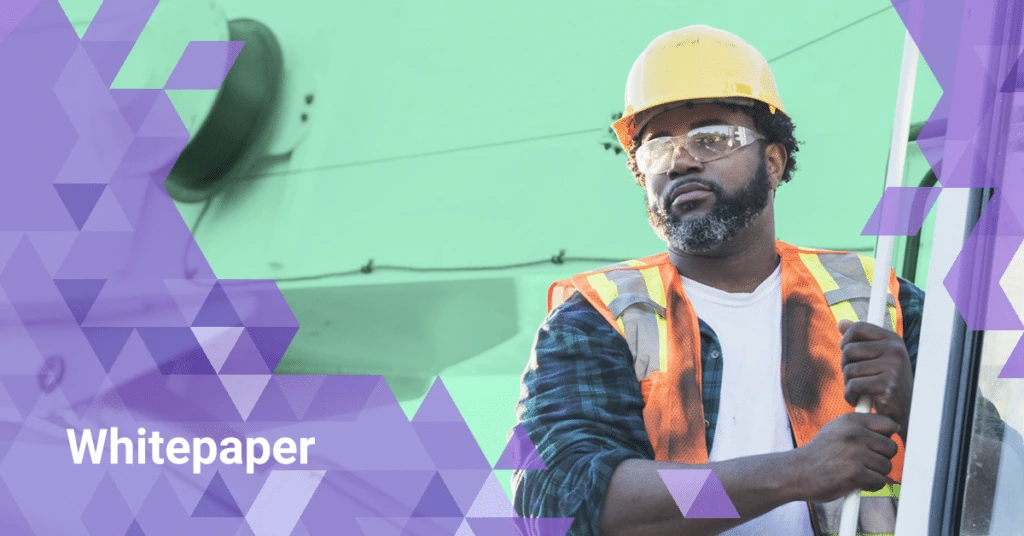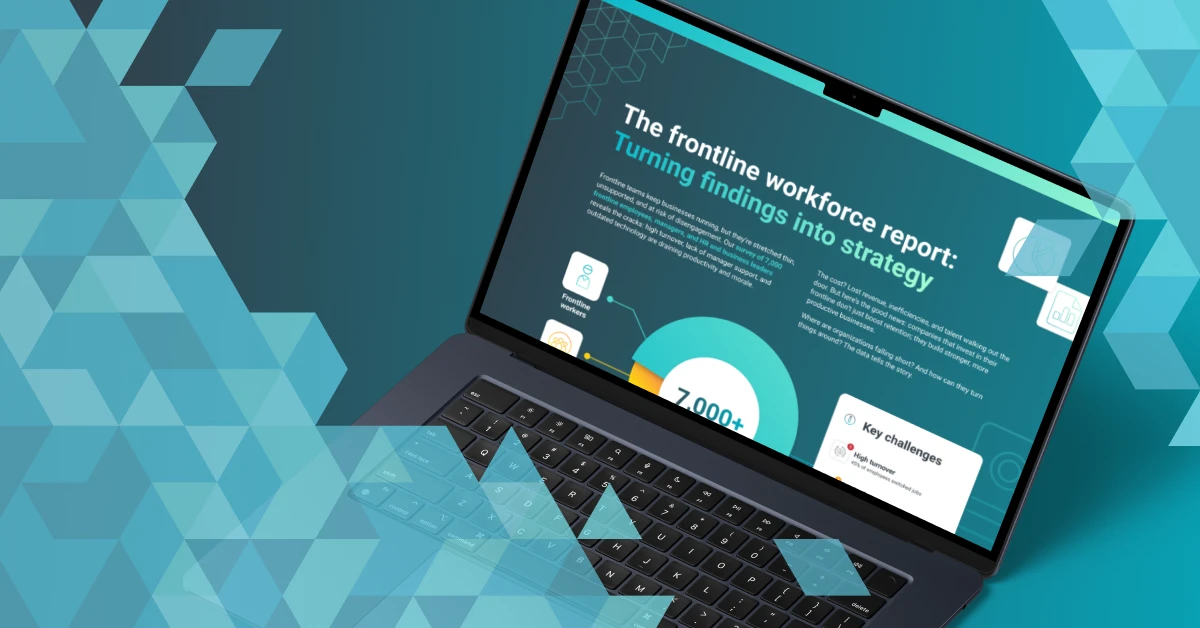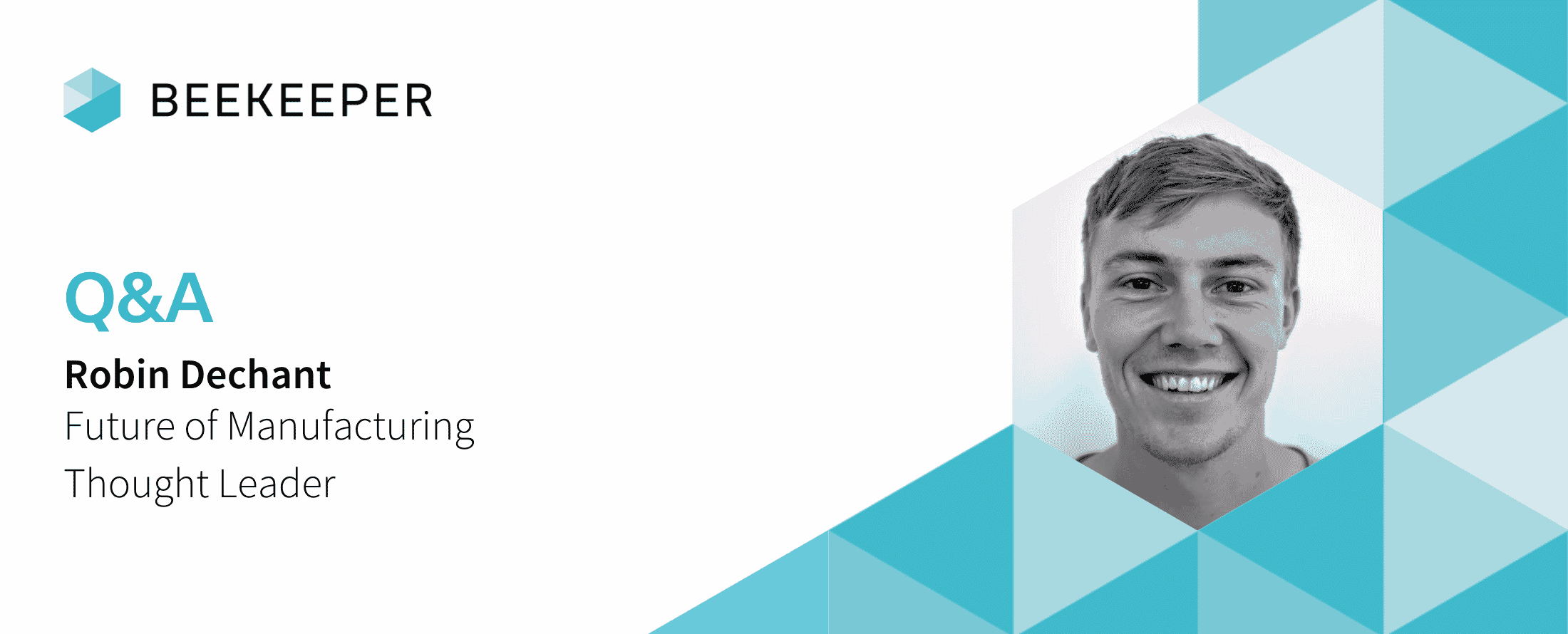Anyone who thinks about the future of the manufacturing industry cannot ignore Robin Dechant. After studying at the Karlsruhe Institute of Technology, Robin spent years handling investments in a series of industry startups for Point Nine Capital. With his newsletter, The Future of Manufacturing, he helps thousands of readers keep their fingers on the pulse of progress when it comes to digital transformation in manufacturing.
Recently, he gathered a variety of industry leaders to launch Aveo. The project supports decision-makers in the industry in digitizing their workforce and turning them into drivers of innovation.
Above all, this requires a new mentality – which is precisely what this interview and his keynote at Frontline Future 2021, titled “Leading through Change – Embrace the Future of Manufacturing,” is about.
1) You give a lot of thought to innovation in manufacturing, as evidenced by your popular newsletter, “The Future of Manufacturing.” Is technology the answer to everything?
No, there is no way technology is the answer to everything. Of course, technology plays a very important role in topics like digitization, but it is just as important to simply get people involved. Based on my experience, there is a lot of catching up to do, especially on the latter point.
2) What role does communication play in frontline industries, and where do you see room for improvement?
The interesting thing is that many people already communicate digitally in their private life, but they have not really transferred this behavior to communication in the workplace. In industries where employees are more distributed, efficient communication is, of course, particularly important. In most cases, digital is simply better.
This concept applies not only to internal company communication but also between companies – regardless of whether it is a customer or a supplier. In my opinion, there is still a lot of room for improvement here in order to make internal and external processes more efficient.
3) The young workers of today and tomorrow are true digital natives. Does this also affect work in the industry?
Definitely, and in my opinion, this has two major effects.
- First, young employees not only want but are able to work digitally. In traditional companies that have so far neglected digitization, the two worlds sometimes collide. These companies will find it increasingly difficult to find good and digital-savvy young professionals.
- Second, the younger generation has a lot of expectations about how they want to work. Issues such as time and workplace flexibility, diverse opportunities for further training, and purpose are much more valuable to the younger generation. Companies have to adapt if they want to remain attractive employers in the long term and inspire these people.
4) Fridays for Future and other initiatives show that young people are increasingly looking for a purpose. Does the industry have to react to this?
Yes, absolutely, and unfortunately, far too little happens here. In the past, many companies in manufacturing have invested primarily in machines and technologies. A mental shift has to take place and there should be more investments in people. The world is turning faster and work no longer means doing the same job for decades.
Young people, in particular, want to work together on a mission and continue to develop, both professionally and personally. That’s only possible if you give them the freedom and opportunity to do so – and that costs money. Otherwise, it will be difficult to attract and retain the best talent. Companies such as Volkswagen have caught on to this and have launched a number of initiatives.
5) Your lecture is titled “Leading through Change – Embrace the Future of Manufacturing.” What change are you talking about?
For me, it’s primarily about a change of mindset. Europe has been pioneering technology in many areas over the past few decades, which has led to a great deal of prosperity. However, we are increasingly lagging behind in an international comparison and are investing far too little in innovation topics and employee training.
We have to take greater risks when it comes to innovation. This is the only way we can learn and, above all, learn faster than if we just talk it through. I’m tired of hearing reasons why something isn’t working. Maybe we should ask ourselves, “What if that works?” That would be nice. I would be happy about that.
Want to hear more? Complete the form below to listen to the full recap of his session!

About the author
Beekeeper
Interested in learning more?
Join 1200+ companies transforming frontline work with Beekeeper. Start your journey today to make every task easier, every team stronger, and every shift smoother.








